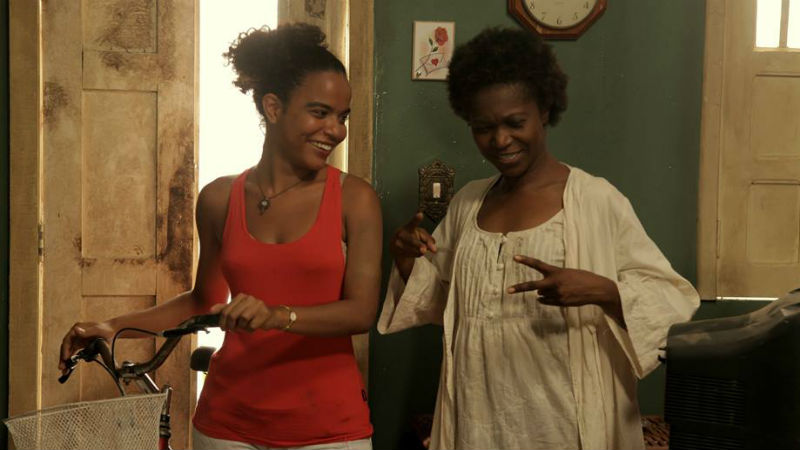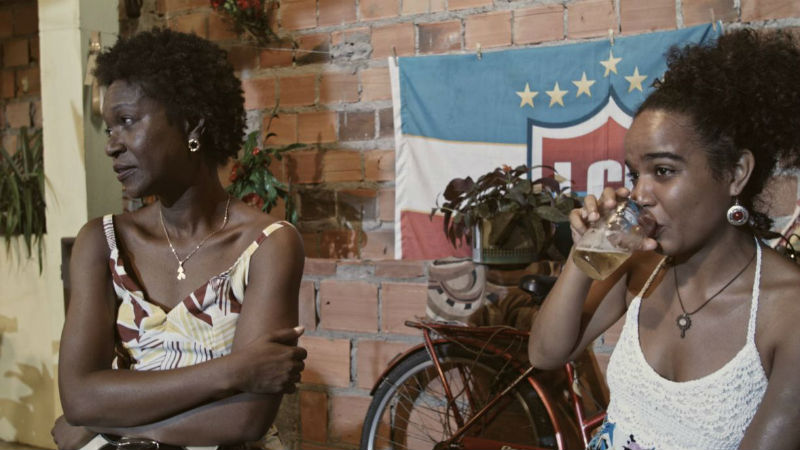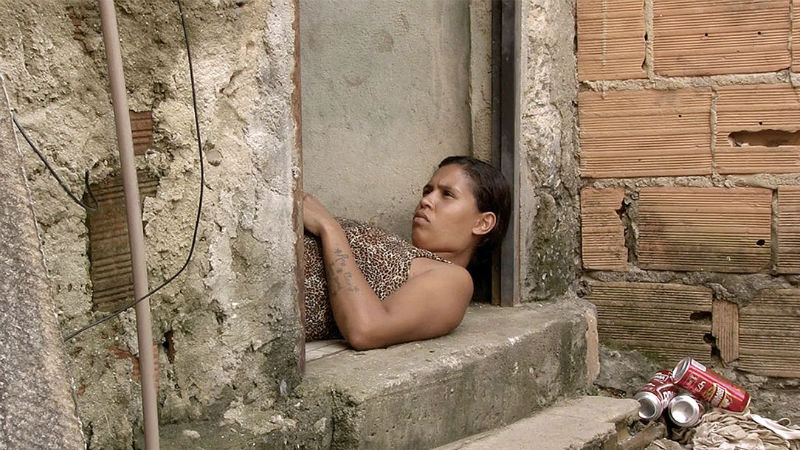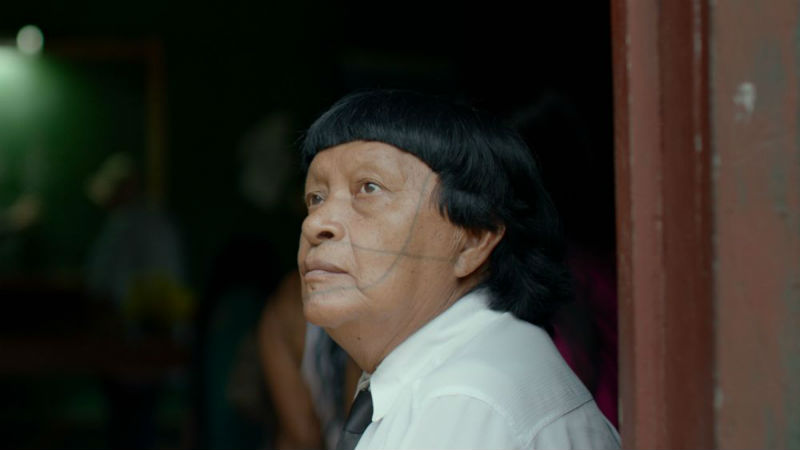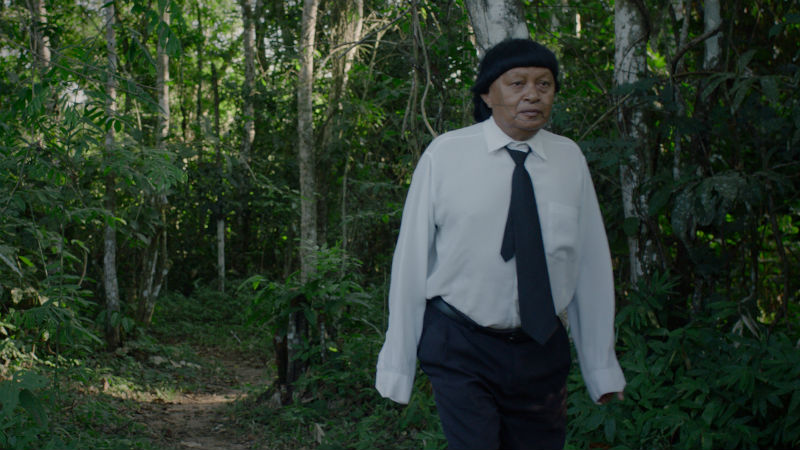QUICK SNAP: LIVE FROM LOCARNO
Who says you can’t do it all? Simone (Sol Miranda) is a young Black bisexual Brazilian woman with two very different professions. During the day she is studying to be a public defender, protecting the most vulnerable in contemporary society; by night, she is a cam girl, performing sex acts on camera for male attention. Just by existing, she is everything Jair Bolsonaro hates.
The title shows that anything is possible, even in a country where culture is under attack by bigots like in Brazil. Rule 34 is an internet rule that if you think of something, there will be a pornographic depiction of it online (feel free to close this browser and try it yourself!). People like Simone, although often neglected, genuinely exist, and they deserve their own cinematic portrait.
The good news is that we get a cracking, sparkling, discursive and compelling character study with Julia Murat’s film, examining the boundaries of consent, what it means to seek pain, and the intersection of systemic oppression and personal choice. Simone herself is on a mission to decolonise her own depiction as a black woman online, arguing that much Black BDSM depiction has connotations of slavery. This is linked to the wider difficulties that Black people face in Brazil, as well as women and minorities.
Instead of a simple polemic however, Murat treats us to a film that pushes back against boundaries, while never settling for easy answers. Discussions between the law students are emboldened and intellectual, with few stupid questions and answers, breaking down simple binaries of black/white, male/female, endlessly looking for the grey areas that the law — by its structural nature — cannot find its way around.
But if the law cannot provide closure or liberation, perhaps sex can. Simone is in a ménage à trois with two of her fellow students, male and female alike, freely showing what can happen when people are informed of what they want to do with their own bodies. Murat makes some bold choices here, displaying full-frontal nudity, asphyxiation, spanking and choking; the likes of which could easily be exploitive in the hands of another director. All the time, however, Simone is looking to push the boundaries, resulting in a spiky feminist film that is both exciting to watch and thought-provoking at the same time.
At the centre is Miranda herself, who has no difficulty holding the attention of the camera as the film intuitively edits between different moments of her life, showing the full, complex spectrum of her character. At one point, she just sits alone and eats what appears to be an onion. It should be a kind of throwaway scene, but in the hands of an actor this assured, it had me strangely compelled. The kind of performance that can change the entire tenor of a film, it’s no wonder Murat chooses to end the film on a close-up. With a face that cinematic, it would be rude not to.
Rule 34 Locarno Film Festival plays as part of the Concorso internazionale at the , running from 3-13th August.









